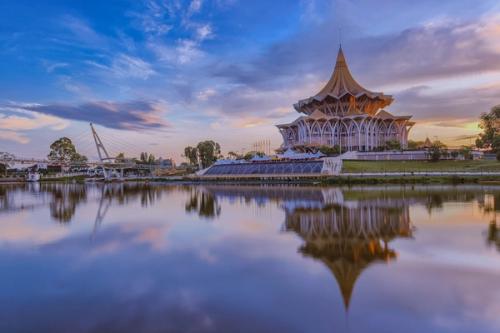Blog • Published on:February 13, 2026 | Updated on:February 13, 2026 • 8 Min
Where Can You Travel Visa-Free with a Malaysian Passport in 2026?
The Malaysian passport is of the most powerful travel documents globally. As of 2026, Malaysian citizens enjoy visa-free, visa-on-arrival or eVisa access to 181 countries and territories.
In this guide, we explore exactly where Malaysians can travel, how long stays are permitted, and what documentation is required.
This includes visa-free destinations, visa-on-arrival options, eVisas, and places where traditional visas are still required. Something that may surprise you is that you are prohibited from entering Israel or North Korea with a Malaysian passport.
How Powerful Is the Malaysian Passport in 2026?
Quick answer: It’s among the top-ranked passports in the world, offering exceptional mobility for Malaysian citizens.
Details:
- According to Wikipedia, as of 2026 Malaysians have visa-free,visa-on-arrival, and eVisa access to 181 countries and territories.
- The passport is ranked in the top 20 globally.
- These privileges reflect strong diplomatic relations, ASEAN membership, and a wide network of visa-exemption agreements.
Statistical snapshot:
With this level of access, Malaysian travelers have real flexibility for tourism, business and short-term relocation.
Where Can Malaysians Travel Without a Visa in 2026?
Direct answer:
Malaysian citizens can travel visa-free to 121 countries and territories in 2026, covering every major region, from Southeast Asia and Europe to the Middle East, Africa, and the Americas.
Details:
This means no advance visa, no eVisa, and no on-arrival application, only a valid passport and proof of onward travel are typically required.
Duration of stay varies by country, generally from 14 to 180 days depending on bilateral agreements.
Short-Stay Visa-Free Access (Up to 30 Days)
Best for quick getaways, business trips, and regional travel.
Best for: Regional travellers and frequent flyers seeking easy short-term access with minimal documentation.
Extended Visa-Free Access (31–90 Days)
Ideal for longer holidays, education, or family visits.
Note: Under EU travel rules, Malaysians do not require a Schengen visa for short stays. However, they will soon need to complete ETIAS registration (expected 2026) before travel.
Best for: Tourists and business travellers seeking up to three months of flexibility without residency paperwork.
Long-Term Visa-Free Access (90+ Days)
Extended stays permitted through special reciprocal agreements or Commonwealth ties.
Best for: Retirees, digital nomads, or families planning longer stays in stable, English-speaking or Commonwealth-linked nations.
Key Takeaway
With one of the most travel-friendly passports in Asia, Malaysians can move freely across almost all major destinations, often enjoying the same visa-free benefits as citizens of Japan, Singapore, and the EU.
For official and real-time updates, travellers are advised to check the IATA Travel Centre or Ministry of Foreign Affairs Malaysia before departure.
Visa-on-Arrival Destinations for Malaysian Citizens in 2026
Direct answer:
Malaysians can obtain Visa-on-Arrival (VoA) in 29 countries and territories in 2026.
These destinations allow travelers to apply upon arrival at the airport or seaport, usually by filling out a short form, paying a small fee, and presenting a return ticket and proof of accommodation.
Standard Visa-on-Arrival Countries
Quick insight: Most of these countries accept both printed and digital proof of return flight. Payment is often accepted in USD or local currency.
Best for: Travelers who prefer spontaneous trips without prior online applications, especially within Africa and South Asia.
Special Entry Permits and Corridors
Malaysia has bilateral or corridor-based access with certain countries where religious, cultural, or economic visits are facilitated under special schemes.
ASEAN Member States Travel Rights
Direct answer:
As a founding member of the Association of Southeast Asian Nations (ASEAN), Malaysia enjoys one of the most liberal regional mobility frameworks in the world.
Malaysian citizens can travel visa-free to all nine other ASEAN countries, often with automatic short-stay permission and simplified re-entry rights.
Free Movement Within ASEAN
Key insight:
Within ASEAN, Malaysians do not require prior authorization, embassy applications, or online registration. Only a valid passport (with 6+ months validity) and proof of onward travel are required.
Best for:
Frequent travelers, entrepreneurs, and retirees exploring affordable living or business opportunities in neighbouring states.
Special Privileges for Malaysian Citizens
Malaysia’s strong diplomatic and economic ties within ASEAN offer additional benefits:
- Priority lanes at regional airports for ASEAN nationals.
- Reciprocal driver’s license recognition (Brunei, Singapore, Thailand).
- Education mobility — Malaysian students can attend ASEAN universities under reduced regional tuition rates.
- Work mobility initiatives under the ASEAN Mutual Recognition Arrangement (MRA) for professionals in medicine, engineering, tourism, and IT.
Example:
A Malaysian engineer can obtain recognition to work in Singapore or Thailand without requalifying through a full local licensing process, provided they meet ASEAN MRA standards.
eVisa Required Countries for Malaysian Citizens in 2026
Direct answer:
Malaysian citizens can apply for eVisas to travel to 31 countries and territories in 2026.
These systems allow travelers to apply online, eliminating the need for embassy visits, and usually provide approvals within 1 to 5 working days.
Online Application Destinations
Note:
Some countries, such as Saudi Arabia and India, offer multi-entry eVisas valid for one year or more, ideal for frequent travelers.
Best for:
Business professionals, digital nomads, and frequent travelers who prefer pre-approved online entry without embassy appointments.
Processing Times and Validity Periods
Average eVisa approval time:
- Express: 24 hours (Qatar, UAE, Kenya)
- Standard: 2–5 business days (India, Australia, Kazakhstan)
- Extended: 7–10 days (Russia, Ethiopia)
Typical validity:
- Single-entry: 30–60 days
- Multiple-entry: Up to 1 year (India, Saudi Arabia, UAE)
- Stay period: 14–90 days per visit
Entry requirement:
Digital or printed confirmation, valid passport (6+ months), proof of return flight, and sometimes accommodation proof.
Quick insight:
Malaysia ranks among the top 15 passports worldwide for digital entry access, reflecting its strong diplomatic network and reciprocal visa agreements.
eVisas are now the dominant model in the Middle East and Africa, with most traditional paper visas being phased out.
Countries Requiring Traditional Visa for Malaysians
Direct answer:
Despite Malaysia’s strong global mobility, citizens still require a traditional (embassy-issued) visa to visit 15 countries and territories in 2026.
These usually include nations with strict border control, security concerns, or reciprocity limitations.
Embassy Submission Requirements
Note:
For destinations like Russia,eVisa systems have largely replaced embassy procedures. However, long-term or multiple-entry business visas still require in-person applications.
Documentation typically includes:
- Valid passport (6–12 months)
- Application form and recent photographs
- Proof of accommodation or invitation letter
- Return flight booking
- Proof of sufficient funds
- Visa fee payment receipt
Advance Application Timeline
Best for:
Travelers planning long-term relocations, student exchanges, or business setups in North America, the Middle East, or Central Asia, where security screening or reciprocity conditions are stricter.
Regional Travel Agreements for Malaysian Citizens
Direct answer:
Malaysia benefits from one of the world’s strongest networks of regional and multilateral mobility agreements, thanks to its roles in ASEAN, APEC, and the Commonwealth.
These frameworks allow simplified travel, extended stays, and even special business and education privileges across Asia-Pacific and beyond.
Asia-Pacific Travel Benefits
Malaysia is a member of APEC (Asia-Pacific Economic Cooperation), a major regional alliance of 21 economies, which grants Malaysian business travelers the APEC Business Travel Card (ABTC) advantage.
APEC Member Access:
- Visa-free or expedited entry to countries such as Australia, New Zealand, Japan, South Korea, Singapore, Thailand, Vietnam, and the Philippines.
- Dedicated APEC lanes at major airports for fast-track immigration clearance.
- Multiple-entry validity: up to 5 years, ideal for entrepreneurs and frequent flyers.
Best for:
Business investors, executives, and professionals who regularly travel within the Asia-Pacific corridor.
Pro insight:
The APEC card operates as a pre-cleared visa substitute, meaning that once issued, holders can enter participating nations multiple times without reapplying for entry permission.
Commonwealth Nations Access
As a member of the Commonwealth of Nations, Malaysia enjoys mutual diplomatic cooperation with over 50 countries, including the U.K., Canada, Australia, New Zealand, and Caribbean nations.
Key Commonwealth privileges:
- Simplified visa or eVisa procedures for short visits.
- Recognition of academic qualifications under the Commonwealth education framework.
- Participation in youth exchange and scholarship programs, such as the Commonwealth Scholarship and Fellowship Plan (CSFP).
- Mutual recognition of driving permits and professional qualifications in select member states.
Example:
Malaysian graduates can apply for Commonwealth-funded postgraduate scholarships in the U.K. or Australia, and Malaysian businesspeople often benefit from bilateral trade facilitation in Canada and New Zealand.
Best for:
Students, skilled professionals, and entrepreneurs seeking extended Commonwealth mobility and recognition advantages.
FAQs on Malaysian Passport Travel in 2026
How many countries can Malaysian citizens visit without a visa in 2026?
Malaysian citizens can travel to 181 countries and territories either visa-free, with visa on arrival, or via eVisa access, making it one of the most powerful passports globally.
Which countries offer the longest visa-free stay for Malaysians?
Malaysians can stay 90 days out of 180 in the Schengen Area.
Which countries still require Malaysians to apply for a traditional visa?
A small number of destinations require a pre-approved visa through an embassy, including the United States, Canada, and Algeria.
Do Malaysians need an eVisa or ETA for certain destinations?
Yes. Countries like India, Pakistan, Turkey, Kenya, and Sri Lanka require Malaysians to apply online for an eVisa or Electronic Travel Authorization (ETA) prior to departure.
What documents should Malaysians carry when traveling visa-free?
Most countries require:
- A passport valid for at least 6 months beyond your date of entry.
- Proof of return or onward travel.
- Proof of accommodation and sufficient funds.
How long should I apply in advance for a visa-required destination?
Apply at least 3–6 weeks in advance when traveling to destinations that require a traditional visa such as the U.S. or Canadato allow time for biometric submission and interview scheduling.
References
Wikipedia – Visa Requirements for Malaysian Citizens. Referred from: https://en.wikipedia.org/wiki/Visa_requirements_for_Malaysia_citizens
International Air Transport Association (IATA) – Travel Centre. Referred from: https://www.iatatravelcentre.com/
Ministry of Foreign Affairs, Malaysia – Consular Division. Referred from: https://www.kln.gov.my
ASEAN Secretariat – ASEAN Framework on Visa Exemption. Referred from: https://asean.org
APEC Business Mobility Group – APEC Business Travel Card. Referred from: https://www.apec.org
Commonwealth Secretariat – Member States and Mobility Framework. Referred from: https://thecommonwealth.org
Written By

João Silva
João Silva is a seasoned consultant in the global mobility industry with over 12 years of experience. Specializing in European residency and citizenship by investment programs, João has assisted hundreds of high-net-worth clients in securing their second citizenship through strategic investments in real estate and government bonds.
Related Articles


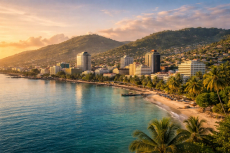

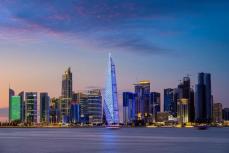



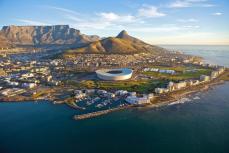
Recently Published
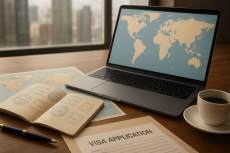
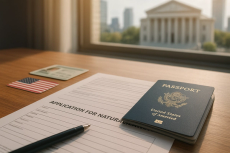







Book a free consultation


